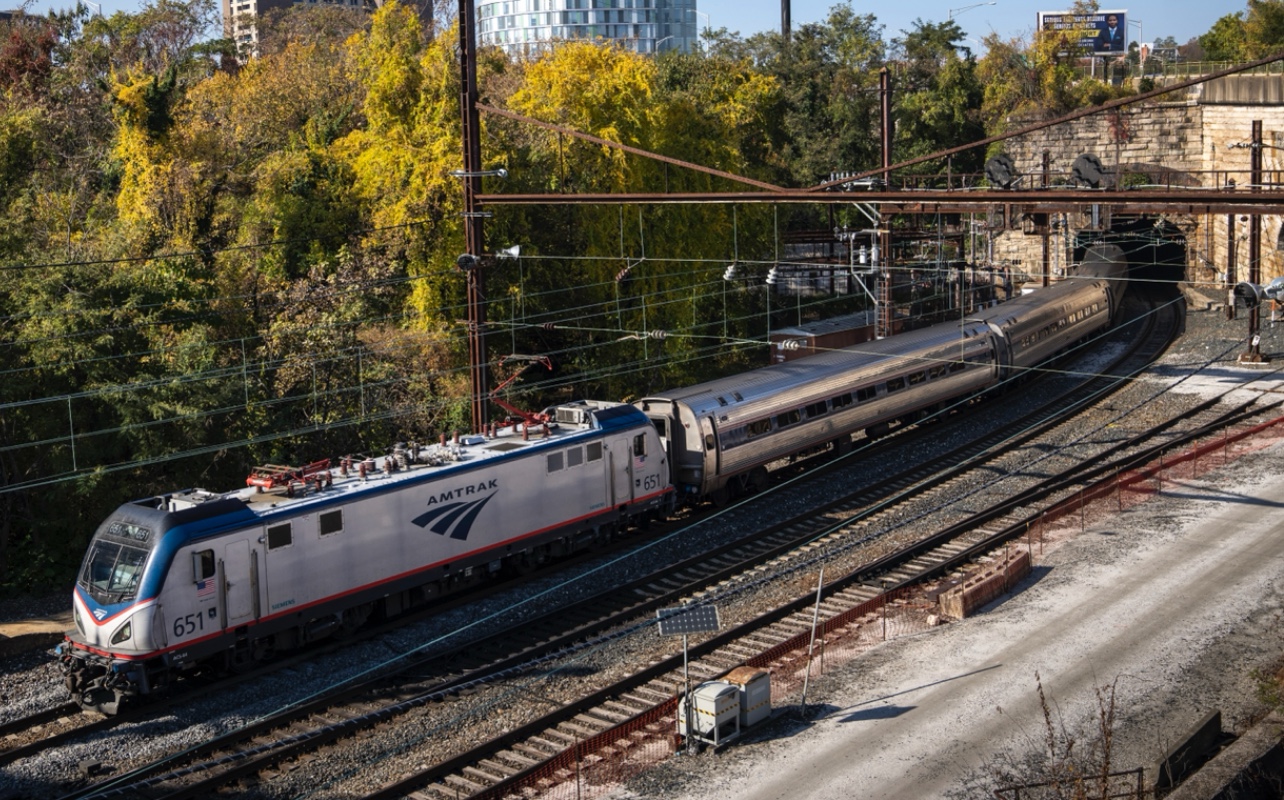
May 7, 2024
Group Of Baltimore Residents File Civil Rights Complaint To Stop Construction Of Frederick Douglass Tunnel
Think it should go somewhere else?
Residents from a historic West Baltimore neighborhood filed a complaint in hopes it would stop the construction of a proposed Amtrak tunnel named after Black abolitionist and writer Frederick Douglass.
Reservoir Hill residents allege the proposed Frederick Douglass Tunnel Program will hurt Baltimore’s Black and low-income community members.
“To name a tunnel and a project like this after someone who actually fought for freedoms, truth, and equality for all is really, really disappointing,” Reservoir Hill Association President Keondra Prier said.
New York University School of Law’s Civil Rights and Racial Justice Clinic is representing the Reservoir Hill Association. Filed under Title VI of the Civil Rights Act of 1964, which allows federal agencies to block the recipients of federal funding from enlisting programs that have an “unjustified discriminatory impact,” the association wants the Department of Transportation (DOT) to open a Title VI investigation into the racial disparities of the Frederick Douglass Tunnel Program.
“As part of this investigation, the DOT should require Amtrak to halt its construction of the Frederick Douglass Tunnel and a ventilation building planned for the neighborhood,” the group wrote in the complaint.
The $6 billion project would replace the Baltimore and Potomac Tunnel, after 150 years, which connects routes through Amtrak’s northeast corridor ]– servicing Boston, New York, Philadelphia, Baltimore, and Washington D.C. The tunnel has started to deteriorate, requiring trains to go as slow as 30 mph and creating delays; the construction would modernize the structure.
However, residents feel differently. The tunnel currently passes beneath Bolton Hill, Upton, and Sandtown-Winchester. New construction would allow trains to pass beneath West Baltimore neighborhoods, including Reservoir Hill, Penn North, and Midtown-Edmondson, subjecting the community to noise pollution, solid waste, and rodent issues.
The complaint alleges Reservoir Hill will be impacted the most, including destroying homes, businesses, and houses of worship, as well as the ventilation facility being proposed to be built across the street from Dorothy I. Height Elementary School. “Across the street from an elementary school shows the level of disregard that Amtrak has come to our community with,” Association BP Working Group Chair Carson Ward said.
Parents and neighbors of the school have also expressed concern, with one parent highlighting that city kids have a higher asthma rate.
“Baltimore City’s kids have a higher rate of asthma than every single surrounding county, and we just continue to bear the brunt of whatever’s commercially needed for the city in our neighborhood to protect the other neighborhoods, and this is step one, two, three, four and five as far as I’m concerned: no vent facility across the street from the elementary school,” Darryl McClain said.
The asthma rate was confirmed by the Maryland Department of Health, which stated over 33% of high school students in Baltimore had been diagnosed with asthma compared to the statewide rate of just under 26%.
Opponents of the construction want the DOT to step in, pushing for a discussion of the project with those who are said to be affected, as the complaint claims community meetings haven’t been effectively advertised and Amtrak officials have been unresponsive.
“At the end of the day, the issue is that under the law, Amtrak is supposed to engage with the community in a way that you feel like your voice is heard, that all the decisions are very transparent and very clear, that the measures of why they decided to put something in your neighborhood and then to come up with a plan on how to make that beneficial to everyone,” Prier said “And if you ask anyone along the alignment, they’ll tell you that none of those things have been accomplished.”
Residents also hope Amtrak is forced to choose a new location and consult with the community on the building’s design as demolition began in February 2024.